Insurance
Whether you are preparing for your retirement years or simply aligning ideas for tomorrow, a comprehensive plan is required. Without a plan in place you could find yourself unprepared when challenges in life present themselves. A premature death of yourself or a loved one would alter your situation considerably and without haste. Your family's standard of living could change drastically in just a matter of moments. Life insurance would be a viable alternative to being unprepared should the tragedy of a premature death occur. Life insurance provides tax-free funds to named beneficiaries. The proceeds are paid directly to the beneficiaries outside of the estate, providing immediate assistance when help is needed most. If adequate coverage is in place, the insurance proceeds could be invested and the interest generated could be used to cover your dependents continued living expenses. For others, life insurance may be put in place to offset the expenses that are attributed to their estates such as probate fees and taxes. A tax burden could potentially be wiped out through the proceeds of a life insurance policy.
The proceeds of a life insurance policy could ensure that your family maintains a standard of living to which they have been accustomed. Often individuals have insurance coverage through their employer that they consider to be a reasonable amount of money that would allow their loved ones to get through the rough times, not factoring in the many years to follow that financial assistance may be required. Some people reject the idea of life insurance because their home and autos are paid for, or they have little or no debt. In the event of your premature demise, how long would your family be in a position to maintain their same standard of living?
In reality, it is not nearly as long as most would predict. Life insurance can erase that predicament. Insurance can be customized and used to meet personal and/or business needs. A business partner can be assimilated to a family; insurance proceeds could ensure that a business partner has sufficient funds to continue in a business in which a partnered relationship once existed.
The need for coverage and the amount of insurance coverage that may be required is unique to individual situations. The coverage amount is often under or over estimated and many clients feel overwhelmed with the responsibility of making the decision. Working with a financial advisor takes the guesswork out of the equation. Your needs change with time and therefore should be re-evaluated when you experience any major changes in your life; things such as a marriage, the birth of a child, the start up of a new business or a new job, the purchase of a home, a divorce, perhaps you have a spouse that has come to rely upon you for financial security or you have taken on the responsibilities associated with aging parents. Needs change as situations change. It is important to work with an advisor and keep an open line of communication as changes occur.
What is Most Valuable to Insure?
People tend to insure their material possessions yet often overlook insuring something far more important - their life. There is a substantial difference between individuals and possessions. Material things can be replaced, unfortunately your life cannot. When you purchase expensive items such as art, automobiles, a cottage or a home, you are inclined to insure your items against loss or damage. Most people see value in protecting their possessions; putting insurance in place, they purchase extended warranties, put insurance clauses in effect, or pay a higher premium to obtain a lower deductible should loss or damage occur. Yet for many, the single most important possession has been left unprotected - their life; they fail to see value in insuring themselves. As a financial advisor, I will assist you in determining if life insurance is a viable option for you, and if so, will help you to ascertain the amount and type of coverage that would be suitable for your personal situation.
Is Life Insurance an Investment?
While most don’t consider life insurance to be an investment, there is a more complex approach to using insurance as an investment. If you have maximized your RRSP contributions and prefer a more hands-on approach, there are tax-deferred strategies that can be utilized within a universal life insurance contract. A universal life policy is a comprehensive plan that can meet your life insurance needs, while providing the potential for tax-deferred growth within the policy.
Is Life Insurance Enough?
Your financial potential is based on your abilities, health and mental state of mind. When discussing the need for insurance, people tend to view insurance as one dimensional - in the event of death. While life insurance will undoubtedly protect your dependents and ensure that your family will not be left unprepared in the event of your demise. What would happen if rather than dying, you were suddenly faced with being a dependent rather than a provider? How would it affect your family if were unable to provide for them due to poor health or the loss of your physical abilities? People tend to underestimate their contribution to the financial stability of the family. It becomes abundantly clear when tragedy strikes that the financial hardship affects more than just the person who becomes disabled it impacts the entire family. If you were injured in an accident and required long-term care, how would that affect your family’s standard of living? Who would contribute to the household finances if your income were to stop abruptly? Who would supply the income that you once provided? Disability insurance pays you a monthly benefit when a life-altering event occurs due to an accident or illness which prevents you from earning your regular monthly income.


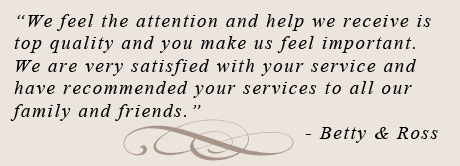
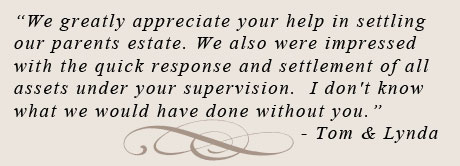
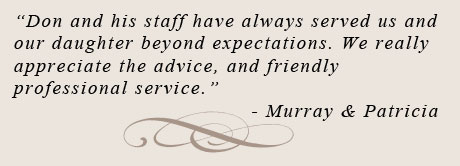
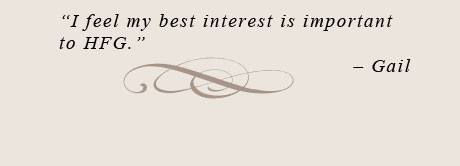
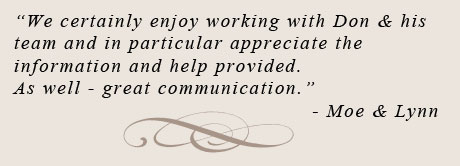
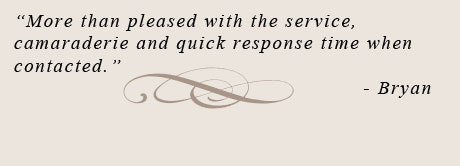
.png)
.png)